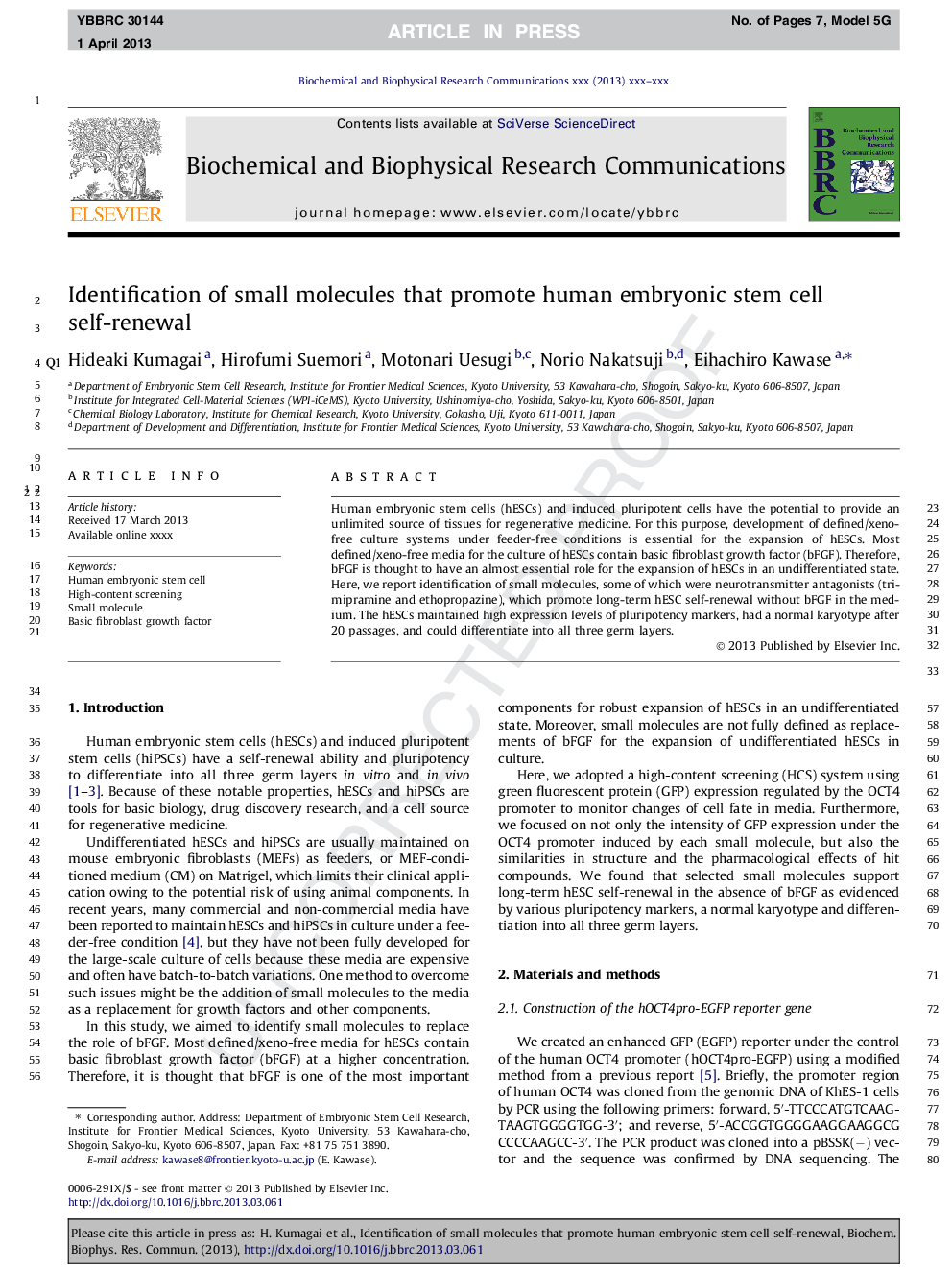| Article ID | Journal | Published Year | Pages | File Type |
|---|---|---|---|---|
| 10759368 | Biochemical and Biophysical Research Communications | 2013 | 7 Pages |
Abstract
Human embryonic stem cells (hESCs) and induced pluripotent cells have the potential to provide an unlimited source of tissues for regenerative medicine. For this purpose, development of defined/xeno-free culture systems under feeder-free conditions is essential for the expansion of hESCs. Most defined/xeno-free media for the culture of hESCs contain basic fibroblast growth factor (bFGF). Therefore, bFGF is thought to have an almost essential role for the expansion of hESCs in an undifferentiated state. Here, we report identification of small molecules, some of which were neurotransmitter antagonists (trimipramine and ethopropazine), which promote long-term hESC self-renewal without bFGF in the medium. The hESCs maintained high expression levels of pluripotency markers, had a normal karyotype after 20 passages, and could differentiate into all three germ layers.
Keywords
Related Topics
Life Sciences
Biochemistry, Genetics and Molecular Biology
Biochemistry
Authors
Hideaki Kumagai, Hirofumi Suemori, Motonari Uesugi, Norio Nakatsuji, Eihachiro Kawase,
